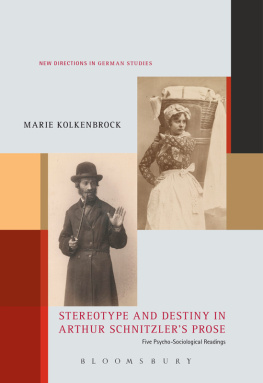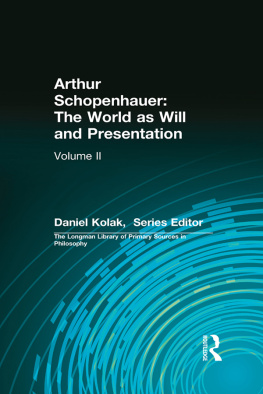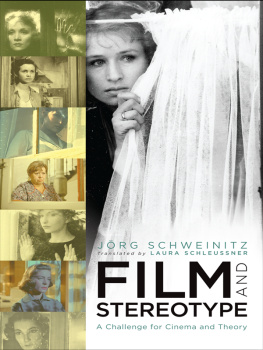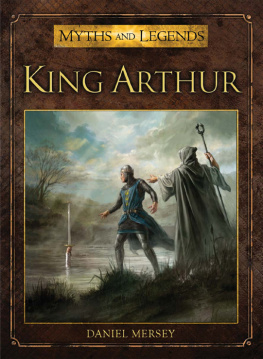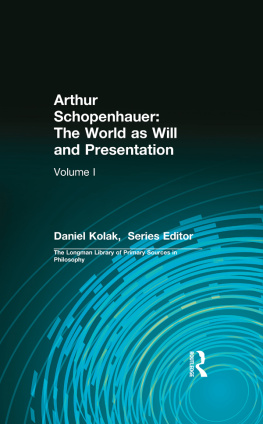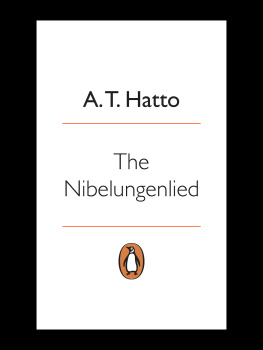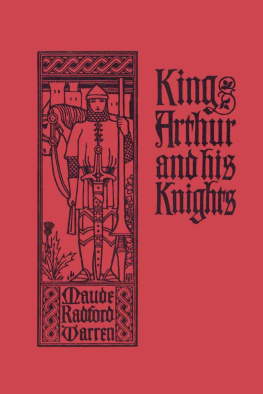Kolkenbrock - Stereotype and Destiny in Arthur Schnitzlers Prose
Here you can read online Kolkenbrock - Stereotype and Destiny in Arthur Schnitzlers Prose full text of the book (entire story) in english for free. Download pdf and epub, get meaning, cover and reviews about this ebook. publisher: Bloomsbury USA, genre: Romance novel. Description of the work, (preface) as well as reviews are available. Best literature library LitArk.com created for fans of good reading and offers a wide selection of genres:
Romance novel
Science fiction
Adventure
Detective
Science
History
Home and family
Prose
Art
Politics
Computer
Non-fiction
Religion
Business
Children
Humor
Choose a favorite category and find really read worthwhile books. Enjoy immersion in the world of imagination, feel the emotions of the characters or learn something new for yourself, make an fascinating discovery.
- Book:Stereotype and Destiny in Arthur Schnitzlers Prose
- Author:
- Publisher:Bloomsbury USA
- Genre:
- Rating:5 / 5
- Favourites:Add to favourites
- Your mark:
- 100
- 1
- 2
- 3
- 4
- 5
Stereotype and Destiny in Arthur Schnitzlers Prose: summary, description and annotation
We offer to read an annotation, description, summary or preface (depends on what the author of the book "Stereotype and Destiny in Arthur Schnitzlers Prose" wrote himself). If you haven't found the necessary information about the book — write in the comments, we will try to find it.
Kolkenbrock: author's other books
Who wrote Stereotype and Destiny in Arthur Schnitzlers Prose? Find out the surname, the name of the author of the book and a list of all author's works by series.
Stereotype and Destiny in Arthur Schnitzlers Prose — read online for free the complete book (whole text) full work
Below is the text of the book, divided by pages. System saving the place of the last page read, allows you to conveniently read the book "Stereotype and Destiny in Arthur Schnitzlers Prose" online for free, without having to search again every time where you left off. Put a bookmark, and you can go to the page where you finished reading at any time.
Font size:
Interval:
Bookmark:
NEW DIRECTIONS IN GERMAN STUDIES
Vol. 21
Series Editor:
Imke Meyer
Editorial Board:
Katherine Arens, Roswitha Burwick, Richard Eldridge,
Erika Fischer-Lichte, Catriona MacLeod, Stephan Schindler,
Heidi Schlipphacke, Ulrich Schnherr, James A. Schultz,
Silke-Maria Weineck, David Wellbery, Sabine Wilke,
John Zilcosky
Volumes in the series:
Vol. 1. Improvisation as Art: Conceptual Challenges, Historical Perspectives
by Edgar Landgraf
Vol. 2. The German Pcaro and Modernity: Between Underdog and Shape-Shifter
by Bernhard Malkmus
Vol. 3. Citation and Precedent: Conjunctions and Disjunctions of German Law and Literature
by Thomas O. Beebee
Vol. 4. Beyond Discontent: Sublimation from Goethe to Lacan
by Eckart Goebel
Vol. 5. From Kafka to Sebald: Modernism and Narrative Form
edited by Sabine Wilke
Vol. 6. Image in Outline: Reading Lou Andreas-Salom
by Gisela Brinker-Gabler
Vol. 7. Out of Place: German Realism, Displacement, and Modernity
by John B. Lyon
Vol. 8. Thomas Mann in English: A Study in Literary Translation
by David Horton
Vol. 9. The Tragedy of Fatherhood: King Laius and the Politics of Paternity in the West
by Silke-Maria Weineck
Vol. 10. The Poet as Phenomenologist: Rilke and the New Poems
by Luke Fischer
Vol. 11. The Laughter of the Thracian Woman: A Protohistory of Theory
by Hans Blumenberg, translated by Spencer Hawkins
Vol. 12. Roma Voices in the German-Speaking World
by Lorely French
Vol. 13. Viennas Dreams of Europe: Culture and Identity beyond the Nation-State
by Katherine Arens
Vol. 14. Thomas Mann and Shakespeare: Something Rich and Strange
edited by Tobias Dring and Ewan Fernie
Vol. 15. Goethes Families of the Heart
by Susan E. Gustafson
Vol. 16. German Aesthetics: Fundamental Concepts from Baumgarten to Adorno
edited by J. D. Mininger and Jason Michael Peck
Vol. 17. Figures of Natality: Reading the Political in the Age of Goethe
by Joseph D. ONeil
Vol. 18. Readings in the Anthropocene: The Environmental Humanities, German Studies, and Beyond
edited by Sabine Wilke and Japhet Johnstone
Vol. 19. Building Socialism: Architecture and Urbanism in East German Literature, 19551973
by Curtis Swope
Vol. 20. Ghostwriting: W. G. Sebalds Poetics of History
by Richard T. Gray
Vol. 21. Stereotype and Destiny in Arthur Schnitzlers Prose: Five Psycho-Sociological Readings
by Marie Kolkenbrock
Stereotype and
Destiny in Arthur
Schnitzlers Prose
Five Psycho-Sociological Readings
Marie Kolkenbrock
Bloomsbury Academic
An imprint of Bloomsbury Publishing Inc

Andrew Webber has advised me during the research for this book with knowledge and insight, utmost generosity of time and support, and also with kindness. I am deeply thankful for his mentoring, which is always motivating and inspiring, but never restrictive or determining. Moreover, I would like to thank Michael Minden and Robert Vilain for their critical reading, insightful comments, and support, as well as Peter-Andr Alt, Dagmar Lorenz, Eric L. Santner, and Norbert Christian Wolf for their stimulating input and advice. Two anonymous reviewers gave extremely nuanced and productive feedback, for which I am grateful. The series editor Imke Meyer has provided invaluable guidance throughout the publication process. I would like to thank her, as well as publisher for literary studies Haaris Naqvi, editorial assistant Katherine de Chant, copy-editor Anna Carroll, and everyone else at Bloomsbury Academic, who all have been an absolute pleasure to work with.
The full-cost scholarship from Gates Cambridge Scholarships allowed me to undertake the main research for this book. I revised the final version of the manuscript while being supported by the Ludwig Boltzmann Institute for the History and Theory of Biography, Vienna, and the Schrder Fund Cambridge. Some passages in Chapters Three and Five draw on my article Gothic Infections, published in Modern Language Review 113.1 (2018), 150170. I would like to thank MLR for the permission to reuse this material. I also would like to thank the Syndics of Cambridge University Library for the permission to cite from their archival sources.
More warm thanks go to the following people, who also had an immense (direct and indirect) influence on the progress of this book: Mirjam Berg, Andreas Gehrlach, Lukas Held, Charlotte Lee, Ina Linge, Annja Neumann, Annie Ring, Astrid Schmidt, Lizzie Stewart, Andrea Wald, and Erica Wickerson for helpful comments and encouragement. Alphia Klingenstein for a regular supply of German bread and homemade jam. Karoline Kuchenbcker and Nadja Tschentscher for sharp debates and unwavering care. Steve Ruiz for letting me talk through my ideas and for making me feel at home wherever we are.
I would like to dedicate this book to the memory of my three parents: Jutta Kolkenbrock-Netz, Maria Klingenstein, and Hansjrg Kolkenbrock.
Full bibliographical references to the texts can be found in the Bibliography at the end of this book.
AT | Andreas Thameyers letzter Brief (Andreas Thameyers Last Letter) |
CUL | Cambridge University Library, Schnitzlers manuscripts |
E | Frulein Else (Miss Else) |
F | Die Fremde (The Stranger) |
FiF | Flucht in die Finsternis (Flight into Darkness) |
NL | Das neue Lied (The New Song) |
SL | Das Schicksal des Freiherrn von Leisenbohg (Baron Leisenbohgs Destiny) |
T | Traumnovelle (Dream Story) |
W | Die Weissagung (The Prophecy) |
WiF | Der Weg ins Freie (Road into the Open) |
Iconographical representations of so-called Viennese types were immensely popular in fin de sicle Vienna. Serial photographs of street vendors, laundry girls, knife grinders, and other characters deemed typical for the Viennese cityscape appeared in journalistic feuilletons, on postcards, and commercial advertisements.
Many of his contemporaries saw Schnitzlers writings as the literary pendant to this form of Viennese nostalgia: he was known for his would become even more prominent during the years of the First World War and, much to his dismay, would not cease to pursue him until the end of his life.
Although Schnitzler indeed remains well known for his notorious representation of such Viennese social types as the se Mdel (sweet girl), scholarship has long since exonerated him from his reputation of backwardness. He has been established as the key critical observer of Viennese bourgeois society. My suggestion is, accordingly, that rather than indulging the longing for old-Viennese cosiness through the representation of typecast figures, Schnitzlers prose reveals the psycho-sociological mechanisms behind this form of nostalgia.
In this way, the Viennese types worked to stabilize the power structures of a social order, which was increasingly under pressure.
By the time of Jacques Le Riders (1993, French original 1990) fundamental study Modernity and the Crises of Identity: Culture and Society in Fin-de-sicle Vienna
Next pageFont size:
Interval:
Bookmark:
Similar books «Stereotype and Destiny in Arthur Schnitzlers Prose»
Look at similar books to Stereotype and Destiny in Arthur Schnitzlers Prose. We have selected literature similar in name and meaning in the hope of providing readers with more options to find new, interesting, not yet read works.
Discussion, reviews of the book Stereotype and Destiny in Arthur Schnitzlers Prose and just readers' own opinions. Leave your comments, write what you think about the work, its meaning or the main characters. Specify what exactly you liked and what you didn't like, and why you think so.

